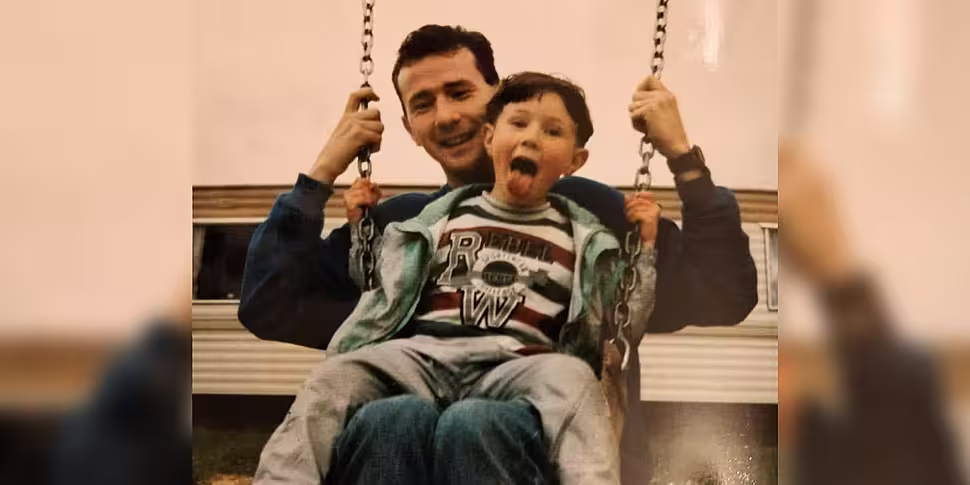The son of a man who took his own life has described the aftermath as “like my worst nightmare had come to me”.
At the time, Danny Quigley was only 21-years-old and the year was 2011.
Now an endurance athlete and mental health advocate, he remembers his father’s suicide as “the most destructive thing imaginable”.
“Where do you go? What do you do? What is the point in anything?” he told Claire Darmody for The Pat Kenny Show.
“My Daddy worked 40 hour weeks, he was flat out - like, he did not stop.
“It made me question a lot of things that my Daddy was doing that maybe wasn’t good for his mental health.
“Maybe he had to take a break from all this stuff? Maybe what my Daddy needed was just someone to was someone and some form of support to rescue him?”
Whatever you're facing, we're here to listen 💚
📱 Call 116 123 for free, day or night. pic.twitter.com/FODGPoP05F
— Samaritans Ireland (@SamaritansIRL) April 21, 2025
The aftermath, the Quigley family all struggled to come to terms with the death of their father.
“We had a black labrador and the labrador was crying next to me,” Danny said.
“It was like hell on earth, it was like my worst nightmare had come to me.
“It was a bad, rough period of my life; it was destructive. I just didn’t see the point in anything.”
If there's something on your mind, you can always talk to us about it.
📱 116 123 pic.twitter.com/7i9EcwesWY
— Samaritans Ireland (@SamaritansIRL) April 11, 2025
Danny recalls that for a long time after his father’s death he “just went numb to everything”.
“I didn’t feel proud or happy if I achieved anything,” he said.
“At the same time, I didn’t feel down and out because the worst thing had already happened.
“It was like, where do you go? What am I supposed to feel?
“A lot of things numbed for me for roughly about a year after my Daddy died.
“There was just a limbo, it wasn’t as if I was living and it wasn’t as if I was dead - I was just existing.
“Nothing really motivated me; I had no goals, I had no aspirations to be anything or earn anything.
“I didn’t want to own anything; we lost the house, we lost pretty much everything but it didn’t matter.
“Because, at the end of the day, nothing’s going to bring my Daddy back.”
You don't have to feel suicidal to talk to us. We're here for anyone – not just for people who are feeling suicidal 💚
We're here to listen and talk through whatever's troubling you.
📱 Call free day or night on 116 123, or email jo@samaritans.ie ✉️ pic.twitter.com/WIcsovoREM
— Samaritans Ireland (@SamaritansIRL) April 6, 2025
One charity that offers support to children and young people after a bereavement is Rainbows Ireland.
Speaking to Newstalk, CEO Anne Staunton acknowledged how “hugely difficult” the aftermath of suicide can be for the surviving parent.
Many, especially those who have very young children, struggle with the question of how much they should tell them.
“Our default position at the moment is telling a child key aspects of what happened in an age appropriate way,” Ms Staunton said.
“That can be built on as that child grows and develops.
“The research definitely identifies children who were told the very opposite and then, later in life, then find out how their parent died.
“This is their parent, their flesh and blood, and they really struggle; it almost weakens the trust that that child might have had with the other parent.”
Newstalk's Losing A Parent To Suicide series is supported by the Rosalynn Carter Fellowship for Mental Health Journalism in Ireland, in partnership with Shine. It was produced by senior producer and 2025 fellow Claire Darmody.
If you or someone you know has been impacted by suicide, you can contact the Samaritans on 116 123, email them at jo@samaritans.ie or visit www.samaritans.ie to find your nearest branch.#
Main image: Danny Quigley and his father Colm. Image: Supplied.









